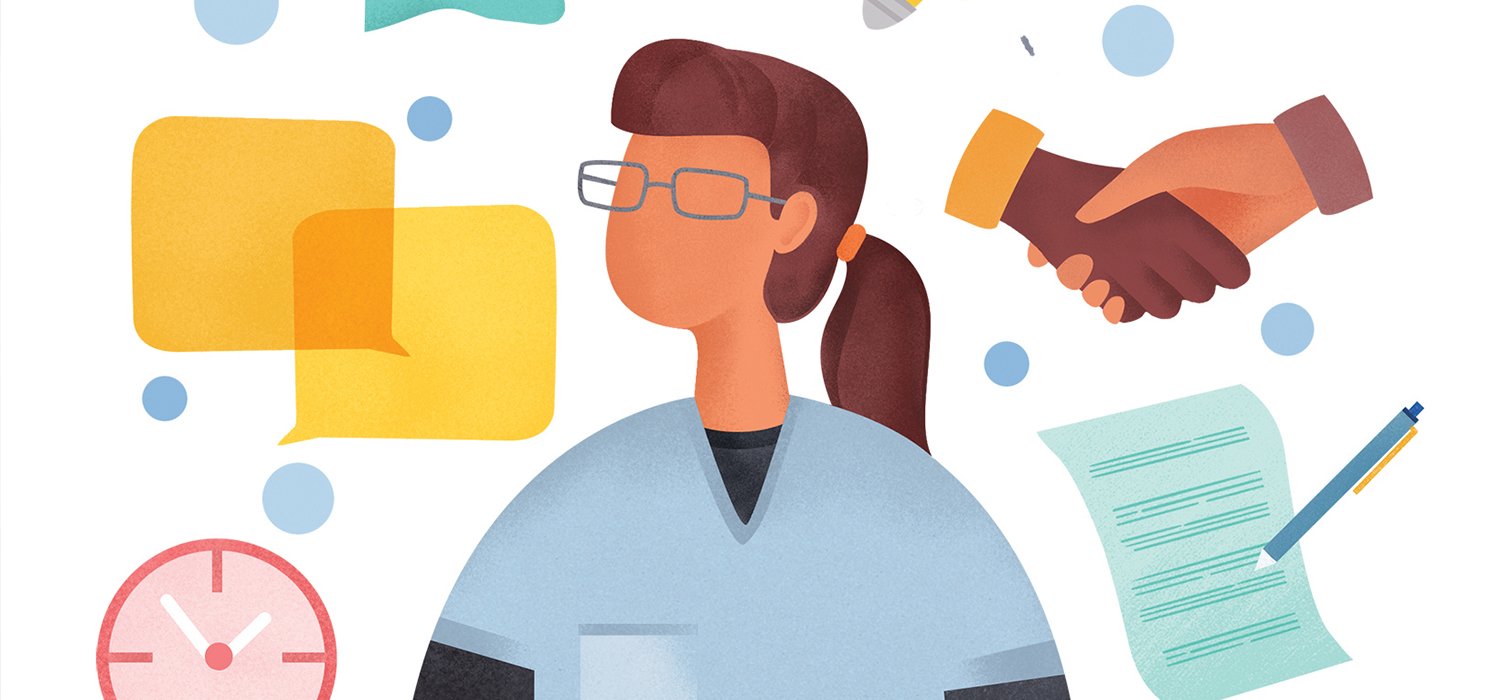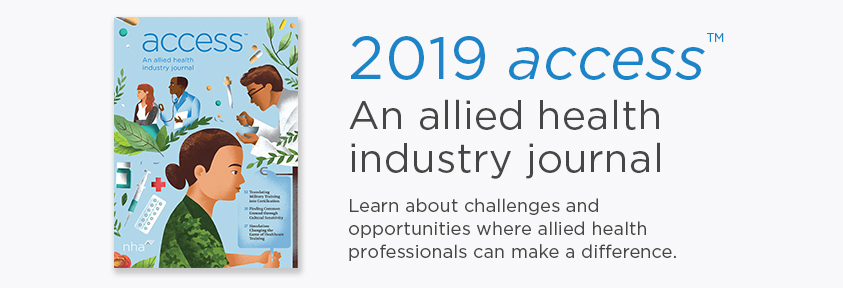Soft skills in healthcare are intangible qualities that can help workers interact with patients and other healthcare providers more effectively. Skills such as thinking critically, effectively communicating, and maintaining confidence can help all allied health workers leverage their expertise and lead to greater productivity. Soft skills are not based on acquired knowledge, employers can help to nurture and develop these skills in their employees in a number of ways, via a broader effort over time through mentorship and real world experience.
Possessing a plethora of soft skills is a valuable trait to employers, especially in healthcare. Many areas of healthcare involve working in fast-paced environments and can, at times, include working under conditions of ambiguity where the patient is nervous, confused or under stress requiring flexibility in the worker’s approach based on the situation. The most valuable employees are those that can be given a task with a desired outcome but who do not need to be micromanaged along the way.
The importance of soft skills
Most employers agree that it is the hard skills that will get candidates in the door for an interview; however, it is the soft skills that will help candidates obtain the position, and even more importantly, determine how successful they will be in their career.
So what is the difference between hard and soft skills?
Hard skills are the skills and knowledge that are necessary to perform specific tasks within a profession. These skills are teachable and easy to measure.
Soft skills are more subjective and not as easily defined; but usually include personality traits, personal habits, inherent social cues, and one’s ability to communicate with others. Soft skills will either complement an employee’s hard skills, or when lacking, diminish them.
In healthcare, soft skills are even more essential because they involve “people skills” or the ability to get along with others. Patients need healthcare workers who will be empathetic of what they are going through. Providers need workers who can process information and respond appropriately. And now that much of healthcare is moving toward team-based care, collaboration among healthcare workers is continuous, making these skills even more important.
Respondents identified critical thinking, attention to detail, communication and dependability as the weakest soft skill areas. Only three to seven percent of respondents feel that allied healthcare professionals receive adequate professionalism training prior to entering the field. On the contrary, 97 to 100 percent of respondents feel that clinical training is adequate for entry level allied health certificate holders. Refer to the data in access™ Job Readiness research section for full survey results.
A variety of experts would argue that soft skills are inherent and cannot be taught. While soft skills may come easier to some individuals than others, many of these skills can be learned and nurtured over time.
So, how can employers help to foster these skills?
Set clear expectations
Communicate with your employees in a manner you wish them to communicate with others. Be clear, yet concise.
Provide resources
Good leaders work for their people. With a clear vision and goal in mind, employees need to be given the proper resources and tools to flourish and succeed.
Foster collaboration
Create an environment based on trust and openness so that everyone is comfortable asking others for help.
Create a sense of ownership
Employees who feel empowered to develop and own a process will inherently be more impassioned about the outcome.
Lead by example
Over time, employees will approach challenges by asking “What would my mentor do?”
Instill trust
People are hired for a reason; reiterating your trust in their abilities and mentoring them along the way will build loyalty and dependability, and foster independent thinking.
Define standards
Create a standard list of the soft skills that are important in your organization. Include soft skills evaluations in reviews and provide constructive, actionable feedback.
Invest in your people
Send employees through training and programs that help them develop soft skills.
Practice makes improvement
There will never be “perfect” as there is always room for improvement, but putting forth a strong effort to nurture employees’ soft skills development will greatly expand their proficiency.
Developing and improving soft skills is an ongoing process, and one that should be a focus, for employers and employees. The more opportunities there are to mentor and develop these skills through every day activities and encounters, the greater the rewards for both. Continually sharpening this skill set will pay great dividends, creating workers that are invaluable assets to the healthcare system, enhancing patient care and safety as well as satisfaction of employers, employees and ultimately bettering the patient experience.
Are you looking for a tool to help your learners improve essential soft skills?
NHA's PersonAbility™ offers a digital solution thats accessible anywhere your learners are, at any time.
References
- Group, C. M. (2013, August 23). In healthcare, soft skills are more critical than ever. Retrieved February 1, 2017, from http://www.ajc.com/business/
health-care-soft-skills-are-more-critical-than-ever/C0gLP5JSzYzZhV2ZHIemcP/ - Staff, I. (2010). Hard skills In. Retrieved from http://www.investopedia.com/terms/h/hard-skills.asp
- Doyle, A. (2016, August 27). What are soft skills? Retrieved February 3, 2017, from The Balance, https://www.thebalance.com/what-are-soft-skills-2060852





